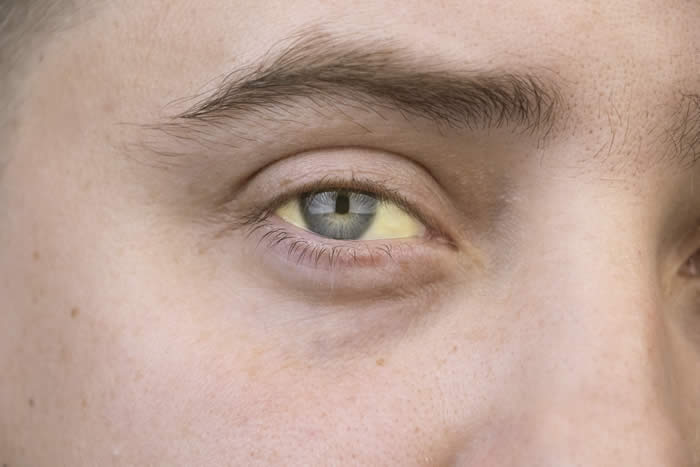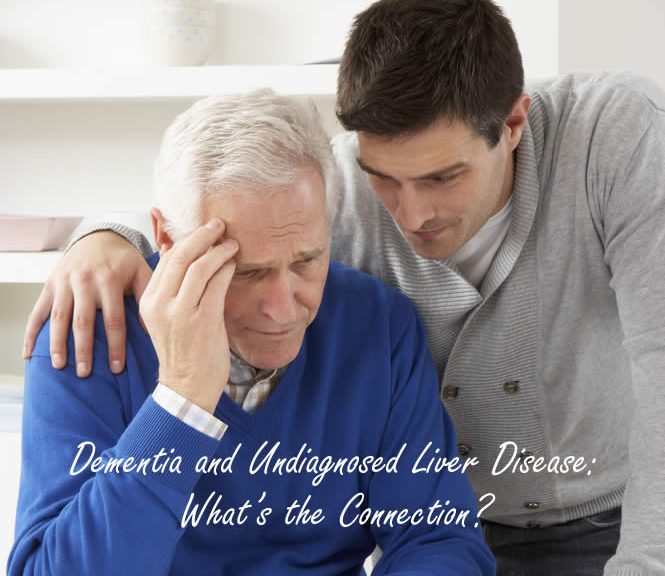
Previous
Resmetirom In Line to Become First Medication-Based Treatment for MASH

Next
Rezdiffra: First FDA-Approved Drug for Treating Fatty Liver Disease
Dementia and Undiagnosed Liver Disease: What’s the Connection?
A 2024 study published in a JAMA Neurology explored the connection between dementia and undiagnosed liver disease.
Dementia affects an estimated one in 10 Americans aged 65 or older. (1) This can leave these individuals struggling to remember even basic things (like their spouse’s name). It also sometimes makes it more difficult for them to problem-solve or communicate. Dementia treatment options are based on whatever it is that is causing the cognitive decline. (2) While one new study doesn’t prove cause and effect, it does suggest that undiagnosed liver disease may play a role in dementia development.
New Study Involving Dementia and Liver Disease
This study was published on January 31, 2024, in the journal JAMA Network Open. (3) It involved 177,422 veterans who had been diagnosed with dementia but had never been diagnosed with cirrhosis.
With cirrhosis, the liver is severely scarred. Although this condition is commonly associated with long-term heavy alcohol use, it can also be a result of chronic liver diseases such as hepatitis. (4)
The veterans in the study were all scored using the fibrosis 4 (FIB-4) index. This index is a tool used to help assess whether an individual may have liver fibrosis, offering a less invasive option than a liver biopsy, also aiding in disease management. (5)
Between 5% and 10% of the vets had FIB-4 scores which suggested that they may have advanced liver fibrosis due to cirrhosis—even though they’d never previously been diagnosed with that condition. This prompted the researchers to urge medical professionals working with dementia patients to look for a potential liver disease that may have been undiagnosed or otherwise missed.
Liver Disease and Reversible Cognitive Impairment
One reason taking this step would be so important is that mild cognitive impairment that occurs as a result of liver disease is reversible. (6) This effect is known in the medical community as hepatic encephalopathy.
Hepatic encephalopathy is a result of the liver’s inability to properly filter toxins in the body, allowing them to build to the point where they impact brain function. It can cause a person to feel confused and disoriented, even impacting their personality and behavior. (7)
Treating the underlying liver disease can improve this organ’s ability to filter toxins as it should. This prevents them from negatively affecting brain function, effectively reversing the cognitive impairment.
Signs of Liver Disease
Liver disease is often referred to as the silent killer because many people don’t develop symptoms until the condition has progressed. Still, there are a few other things you can watch for that could be signs of a potential liver issue.
Symptoms to look for include: (8)

- Having a yellowish skin tone (jaundice)
- Having dark-colored urine and light-colored stools
- Trouble with digestion, especially after eating fatty foods
- Breath that smells musty
- Unexplained weight or muscle loss
- Itchy skin without a rash
If you have any of these symptoms, your healthcare provider can perform or order tests to determine if your liver function is compromised and/or if liver disease exists. Liver disease can be diagnosed with blood tests, imaging tests, endoscopy, or biopsy. (8)
If you or someone you love is dealing with dementia, it can also be helpful to ask your provider to run liver tests. If the dementia is a result of a buildup of toxins, engaging in treatment can help reduce these toxins, potentially reversing this effect.
Ways to Promote Liver Health (and Brain Health)
Since liver health can impact cognitive function, looking after this organ may also promote greater brain health. Fortunately, there are several things you can do to help support proper liver function.
Among them are: (9)
- Limit your alcohol consumption.
- Avoid contact with toxins whenever possible.
- Take steps to prevent hepatitis, such as washing your hands, practicing safe sex, and getting vaccinated.
- Be aware of the medications and herbs you take as several can be hard on the liver.
- Get regular exercise and eat nutritious foods.
Natural Wellness also offers a variety of supplements designed to support liver health. Look after your liver and it can help look after you.
(1) Manly, J., et al. (2022, October 24). Estimating the Prevalence of Dementia and Mild Cognitive Impairment in the US: The 2016 Health and Retirement Study Harmonized Cognitive Assessment Protocol Project. JAMA Neurology. doi:10.1001/jamaneurol.2022.3543
(2) Centers for Disease Control and Prevention. (2019, April 05). About Dementia. Retrieved February 15, 2024, from https://www.cdc.gov/aging/dementia/index.html
(3) Bajaj, J., et al. (2024, January 31). Undiagnosed Cirrhosis and Hepatic Encephalopathy in a National Cohort of Veterans with Dementia. JAMA Network Open. doi:10.1001/jamanetworkopen.2023.53965
(4) Mayo Clinic. (2023, February 11). Cirrhosis. Retrieved February 15, 2024, from https://www.mayoclinic.org/diseases-conditions/cirrhosis/symptoms-causes/syc-20351487
(5) Blanco-Grau, A., et al. (2021, December). Assessing Liver Fibrosis Using the FIB4 Index in the Community Setting. Diagnostics. doi:10.3390/diagnostics11122236
(6) Ferenci, P. (2017, May). Hepatic Encephalopathy. Gastroenterology Report. doi:10.1093/gastro/gox013
(7) Cleveland Clinic. (2023, December 19). Hepatic Encephalopathy. Retrieved February 15, 2024, from https://my.clevelandclinic.org/health/diseases/21220-hepatic-encephalopathy
(8) Cleveland Clinic. (2023, October 04). Liver Disease. Retrieved February 15, 2024, from https://my.clevelandclinic.org/health/diseases/17179-liver-disease
(9) Johns Hopkins Medicine. (n.d.). 5 Ways to Be Kind to Your Liver. Retrieved February 15, 2024, from https://www.hopkinsmedicine.org/health/wellness-and-prevention/5-ways-to-be-kind-to-your-liver






